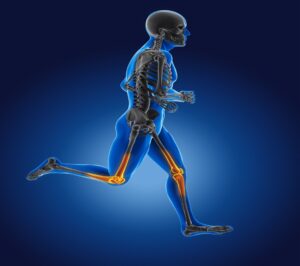As we age, keeping our bones healthy and strong should be a top priority for all of us. Strong bones reduce the risk of fractures and bone-related diseases like osteoporosis, which can have serious consequences for our mobility and quality of life. Here are six essential tips for maintaining strong bones as you age.
Tip one: Consume a balanced diet. Consuming foods rich in calcium, vitamin D, and other essential minerals is crucial for maintaining bone health. Some good sources of calcium include dairy products, leafy green vegetables, and fortified foods such as breakfast cereals. Vitamin D is also crucial for strong bones as it helps our bodies absorb calcium. Fatty fish, eggs, and fortified meals are excellent sources of vitamin D.
Tip two: Exercise regularly. Regular exercise is essential for maintaining strong bones as it helps stimulate bone growth. When we engage in weight-bearing activities like walking, running, or strength training, our bones have to work harder to support our bodies, which helps to strengthen them. For example, lifting weights and using resistance bands can help increase bone density, while yoga and Pilates can improve balance and flexibility.

Tip three: Quit smoking. Smoking cigarettes can have serious consequences for bone health. It interferes with the absorption of calcium and reduces bone mass, which can increase the risk of fracture and osteoporosis. If you're a smoker, quitting can have a significant impact on your bone health.
Tip four: Limit alcohol intake. Drinking alcohol in excess can also interfere with bone health. Heavy drinking can interfere with the balance of calcium, vitamin D, and other nutrients in the body, leading to weaker bones and an increased risk of fractures. If you decide to drink, do so sparingly.
Tip five: Get adequate sleep. Getting enough sleep is crucial for maintaining bone health. During sleep, our bones undergo a process called remodeling, which helps to repair and strengthen them. Lack of sleep can interfere with this process and may lead to weaker bones over time. Aim for 7-8 hours of sleep per night to support your bone health.
Tip six: Get regular bone density scans. As we age, it's important to monitor our bone density regularly. This can help detect any issues with bone health early on, allowing us to take steps to strengthen our bones before more serious problems develop. Your healthcare provider can recommend when you should get a bone density scan based on your age, gender, and other risk factors.
In conclusion, maintaining strong bones as we age should be a top priority for all of us. By adopting healthy lifestyle habits like eating a balanced diet, exercising regularly, quitting smoking, limiting alcohol intake, getting adequate sleep, and getting regular bone density scans, we can help reduce our risk of fractures and bone-related diseases. These tips are especially important for older adults but can benefit people of all ages. By taking care of our bones, we can enjoy better overall health and quality of life.
It's important to remember that bone health is not just about preventing fractures and diseases. Strong bones also support our muscles and organs, help us maintain good posture, and allow us to stay active and independent as we age. By prioritizing bone health, we are investing in our long-term physical well-being and quality of life. So let's commit to taking care of our bones, starting today.
We have a good product for maintaining strong bones. Check it out: CALMAZINE TABLET